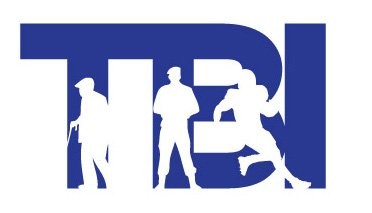
Brain injury biomarker may improve clinical outcome
Traumatic brain injury (TBI) is a significant health problem in the developing and industrialized world.
What is available today? Diagnosis and prognosis in moderate and severe TBI using conventional imaging techniques is informative but these techniques fail to detect the majority of mild brain injuries and provide little or no pathophysiological information related to injury severity. CT imaging often fails to detect moderate TBI, in addition it causes potential exposure to harmful radiation, and is a costly procedure. No clinically accepted TBI blood biomarkers currently exist, a specific and sensitive evaluation is needed. Several markers have been evaluated on their ability to diagnose TBI, with uncertain success.
What is the ideal TBI biomarker? It should be brain-tissue specific, able to cross the blood-brain barrier into the bloodstream within minutes of injury, and can be detected using a point-of-care blood/serum or other body fluid test. Some biomarkers will only be detectable in cerebrospinal fluid (CSF), urine, or other body fluids.
Why is it important to have a biomarker diagnostic/test for TBI? A diagnostic test is important for use in identifying individuals with severe TBI, who are at risk of secondary brain injury and therefore require increased surveillance, or for those individuals with mild TBI, who otherwise may remain undiagnosed and untreated. A diagnostic test can also be applied in cases where there are no external signs of injury, for example for soldiers exposed to blast or explosion injuries.
The effects of TBI have received growing media attention due to its impact on affected athletes and military personnel. In fact, TBI causes more deaths in the age-group < 35 years than all other diseases put together. WHO predicts road traffic injuries to be the third most important health burden in the world in the future, and TBI to be the most common cause of death and disability. Hence, the socio-economic significance of creating an accurate diagnostic tool for TBI as the one developed by Medicortex Finland is immense for public healthcare, trade and industries.
Medicortex’s aim is to develop a simple, easy-to-use and relatively cheap test based on a biomarker found in one of the body fluids. Ideally, the test could be applied within minutes of the initial insult. Current research by Medicortex provides reason for optimism, as the end point of our R&D program is to develop and commercialize a relatively easy diagnostic test as our key market application to be used, for example, in emergency response situations, elderly people’s homes when suspecting a stroke and in sporting events for quick and accurate diagnosis. In comparison to CT scans and MRI available today, a simple point-of-care diagnostic test would be extremely inexpensive and efficient. It could also eliminate the need for invasive actions such as blood tests and the need to laboratory equipment. (www.medicortex.fi )
Chief Executive Officer
8yAn essential tool fit for purpose ...Excellent
Affordable and accessible diagnostics are ideal and biomarkers certainly are showing an enormous potential. It is important to recognize that a successful recovery begins with an accurate diagnosis. An accurate diagnosis of a concussion will ideally decrease returning to play, work and even daily activities too soon, thus preventing further harm and/or delayed recovery. It is as equally important to remember, however, that "once you have seen one concussion, you have seen one concussion." Each person must be treated uniquely for functional impairments from any injury will vary among individuals and a diagnosis does not define nor predict recovery.
Professional Speaker on Prevention CASAC-T
8yGreat Article Adrian. It's safe to say that there are so many variables that have positive or negative effects on one's outcome. Leave it to www.medicortex.fi to be able to understand the unknown!
Biomed Innovation Ecosystem Leader | Teaching Professor @ HUJI
8yGood luck! Hope to this R&D in Jerusalem soon enough.